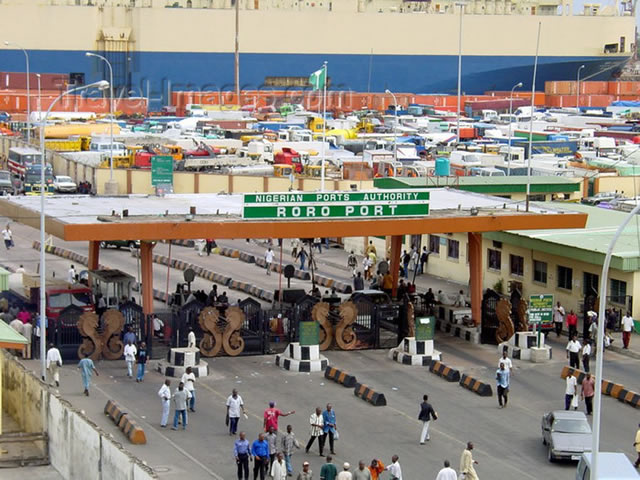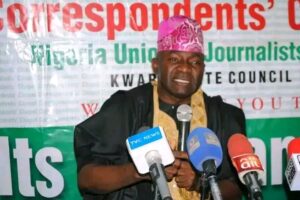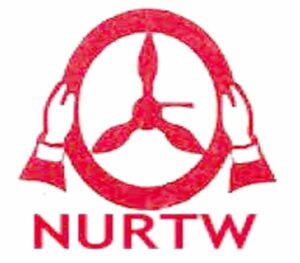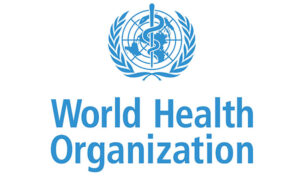
The United States government has faulted Nigeria for the continued delay in approving import permits for American agricultural products, describing the situation as a longstanding trade barrier that has hindered access to the Nigerian market.
In its latest 2025 National Trade Estimate Report on Foreign Trade Barriers, the Office of the United States Trade Representative said that despite repeated efforts to secure market access, Nigeria had not acted on several pending requests concerning food and agricultural imports from the US.
However, the Nigeria Customs Service countered the claims by the United States government that the NCS still operates a largely manual system, describing the assertion as “unfair” and “misinformed.”
The US National Trade Estimate Report on Foreign Trade Barriers stated, “Since 2019, the United States has sought to negotiate import permits for the export of several categories of US food and agricultural products. Nigeria has been slow to approve these requests.”
The USTR noted that Nigeria’s weak capacity to review certificates, inspect goods, and conduct testing had contributed to long clearance delays, forcing many traders to rely on informal channels.
It also criticised Nigeria’s lack of consistency in applying sanitary and phytosanitary rules, saying this had created confusion among exporters.
“Nigeria is not consistent in the implementation of technical regulations and sanitary and phytosanitary measures, which can create confusion and undermine compliance,” it said.
The US government also took issue with Nigeria’s complex and restrictive import regime. It noted that while the country’s average Most-Favoured Nation applied tariff rate stood at 12 per cent in 2023, agricultural products attracted 15.9 per cent, and non-agricultural goods 11.4 per cent.
The report added that Nigeria imposes several supplementary charges that significantly raise the effective rate paid by importers.
“Nigeria maintains a combined duty plus other associated import fees of 50 per cent or more on 79 tariff lines. These include 17 tariff lines on which the combined duty plus other associated import fees reach or surpass the 70 per cent limit set by ECOWAS,” the report said.
It also criticised Nigeria’s continued import bans on 25 product categories, including poultry, beef, spaghetti, fruit juice in retail packs, used vehicles over 12 years old, soaps, and certain alcohols, describing them as barriers to trade.
“The Nigeria Customs Service continues to ban the import of 25 different product categories,” it added.
The report pointed to systemic problems in Nigeria’s customs administration, including corruption, manual processes, and inconsistent interpretation of trade rules.
“Importers report inconsistent application of customs regulations; lengthy clearance procedures, often due to outdated manual processing systems; and corruption,” the USTR stated.
It noted that although the Federal Government approved a $3.1bn customs modernisation project in 2020 to automate processes, the project had suffered delays and was now the subject of legal disputes.
On public procurement, the USTR said US companies face difficulties accessing government contracts due to a lack of transparency and contract payment issues.
It added that agencies often failed to comply with procurement guidelines, despite the requirement for a “Certificate of ‘No Objection’ to Contract Award” from the Bureau of Public Procurement.
“Nigerian Government agencies do not always follow procurement guidelines,” the report said. “Foreign government-subsidized financing arrangements appear in some cases to be a crucial factor in the award of government procurements.”
While acknowledging the passage of the Copyright Act, 2022, and other intellectual property reforms, the report said enforcement remained poor.
“Counterfeit goods, including pharmaceuticals, automotive parts, and other consumer goods, remain widely available in Nigeria and often threaten the health and safety of consumers,” it stated.
The USTR also raised concerns over digital trade restrictions, noting that the National Information Technology Development Agency Guidelines require all data concerning Nigerian citizens to be stored within the country.
It said these localisation rules, though not rigorously enforced, created uncertainty for businesses.
It noted that the Finance Acts of 2020 and 2021 introduced new taxes on digital services provided by foreign companies to Nigerian consumers.
“US companies have expressed concerns about the impact of the tax,” the report said.
It further criticised restrictions in Nigeria’s reinsurance and advertising sectors, including prohibitions on foreign participation in oil and gas risk reinsurance, and mandatory advertising registration with the Advertising Regulatory Council of Nigeria.
On foreign exchange, the report stated that despite the Central Bank of Nigeria’s move to unify exchange rates in 2023 and lift restrictions on access to forex for 43 previously barred items, challenges remained.
“Companies report that the approval process for the repatriation of funds remains a significant barrier to investment by US entities, as it is frequently subject to delays and denials,” it said
It disclosed that out of an estimated $7bn in forex backlogs, only $4.6bn had been cleared by the CBN as of March 2024, while $2.4bn was still under review.
The USTR described Nigeria’s main ports, particularly Apapa in Lagos, as some of the most expensive globally, citing congestion, infrastructure issues, and maritime insecurity.
“The 30-day average delay to clear a container ship makes Apapa in Lagos among the most expensive ports for shipments from the United States,” it noted.
Although it acknowledged the Federal Government’s creation of a Ministry of Marine and Blue Economy and its efforts to improve port efficiency, the report concluded that “barriers that restrict trade and limit investment in Nigeria remain widespread.”
Customs counters US
The Nigeria Customs Service has rejected claims by the United States government that it still operates a largely manual system, describing the assertion as “unfair” and “misinformed.”
In a strong response to the 2025 National Trade Estimate Report released by the Office of the United States Trade Representative, the National Public Relations Officer of the NCS, Abdullahi Maiwada, told The PUNCH that Nigeria Customs had made significant strides in automation and trade facilitation, contrary to the report’s depiction.
“As far as policy issues are concerned, whether items are prohibited or have levies imposed, the Nigeria Customs Service is only responsible for implementing fiscal policies, not formulating them,” Maiwada said. “However, as an agency critical to policy implementation, we remain responsive and responsible in what we do.”
Maiwada noted that the Customs Service had been engaging international partners, including the US itself, in improving operational efficiency.
“Last year, we met with the US Customs and Border Protection Agency and discussed reviving the existing Customs Mutual Administrative Agreement, focusing on information sharing, capacity building, and other collaborative areas,” he said.
He highlighted several reforms that the NCS had launched to enhance trade facilitation, including the Authorised Economic Operator programme, which expedites cargo processing for compliant traders, and the introduction of an Advanced Ruling System that provides legally binding decisions on classification, valuation, and rules of origin.
“In addition, we have conducted Time Release Studies at the Tincan Island Port to identify scientifically the causes of delays in cargo clearance. The results will soon be made available,” he added.
Responding directly to the USTR’s assertion that Nigeria still operates a manual customs system, Maiwada said the statement was inaccurate and does not reflect current realities.
“I think it is an aberration and very unfair to say Nigeria Customs operates manually,” he said. “For the first time in our history, we have developed an indigenous clearance software known as the B’Odogwu Unified Customs Management System, which has already been rolled out at the PTML Command and will be extended to all area commands.”
He also cited recent investments in non-intrusive inspection technologies, including new scanners installed at the Apapa port and geospatial intelligence tools for border management.
“We are one of the most automated Customs systems in Africa,” he stated. “Anyone can go and verify that.”
While reiterating that Customs cannot speak on policy formulation, Maiwada stressed that the agency remains committed to executing Nigeria’s fiscal policies and will continue to improve its operations in line with global standards.
“We will continue to do our job and improve against all odds. But we are not operating a manual process,” he concluded.
When contacted, the Director of Press and Public Relations at the Ministry of Industry, Trade and Investment, Dr Adebayo Thomas, told the PUNCH that the minister had spoken on the issue in the past, and did not comment further.
In an earlier statement, which was a reaction to the tariffs imposed by US President Donald Trump, the Federal Government acknowledged the adverse impact of the now-suspended tariffs on Nigeria’s exports, which could potentially disrupt trade relations and affect the competitiveness of Nigerian products in the US market.
Nigeria’s Minister of Industry, Trade, and Investment, Dr Jumoke Oduwole, responded to the tariff decision, admitting that the policy would undermine the competitiveness of Nigerian goods, especially in sectors reliant on market access and price competitiveness.
She added, “This development strengthens Nigeria’s resolve to boost its non-oil exports by strengthening quality assurance, control, and traceability in Nigerian exports to meet global standards and improve market acceptance into more economies across the globe.”









